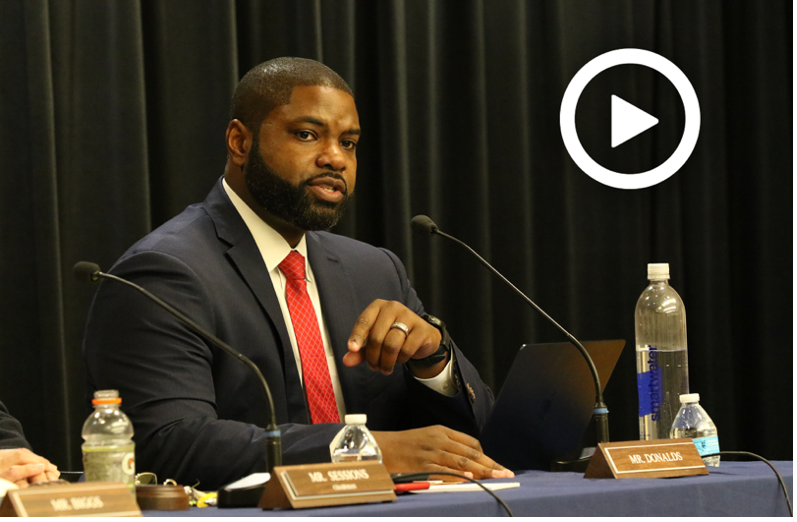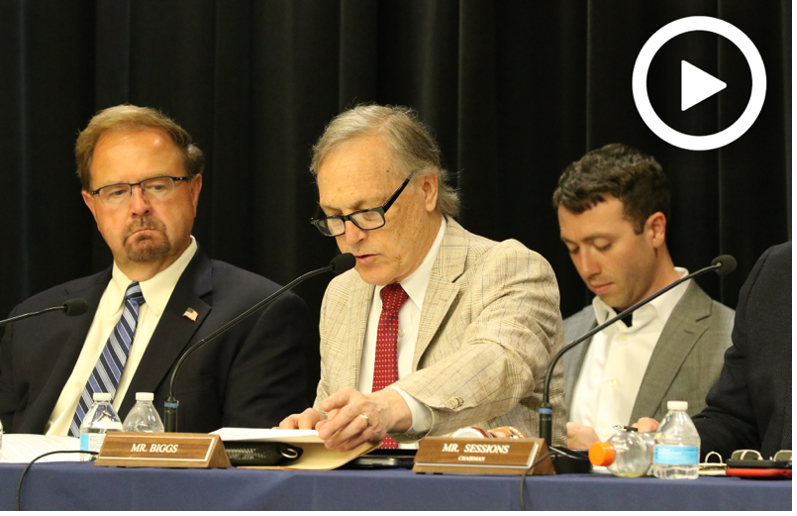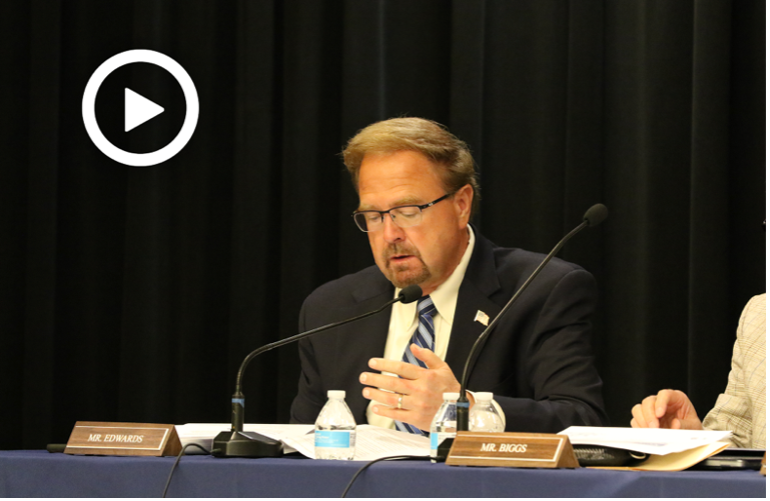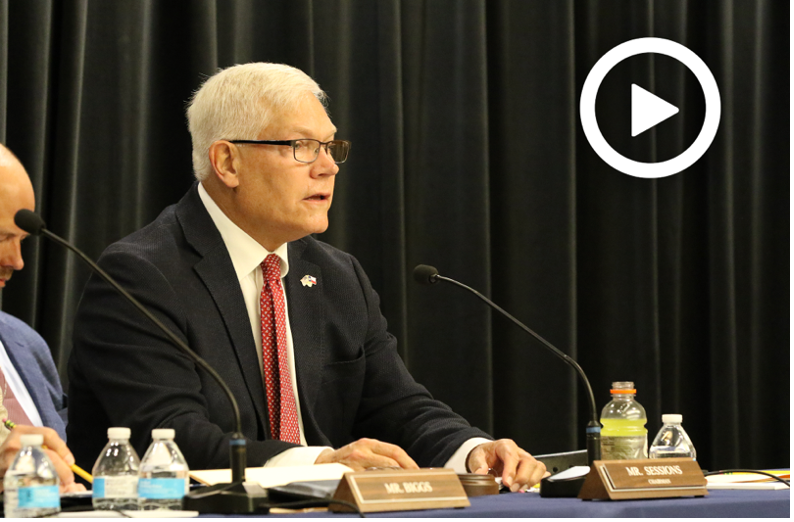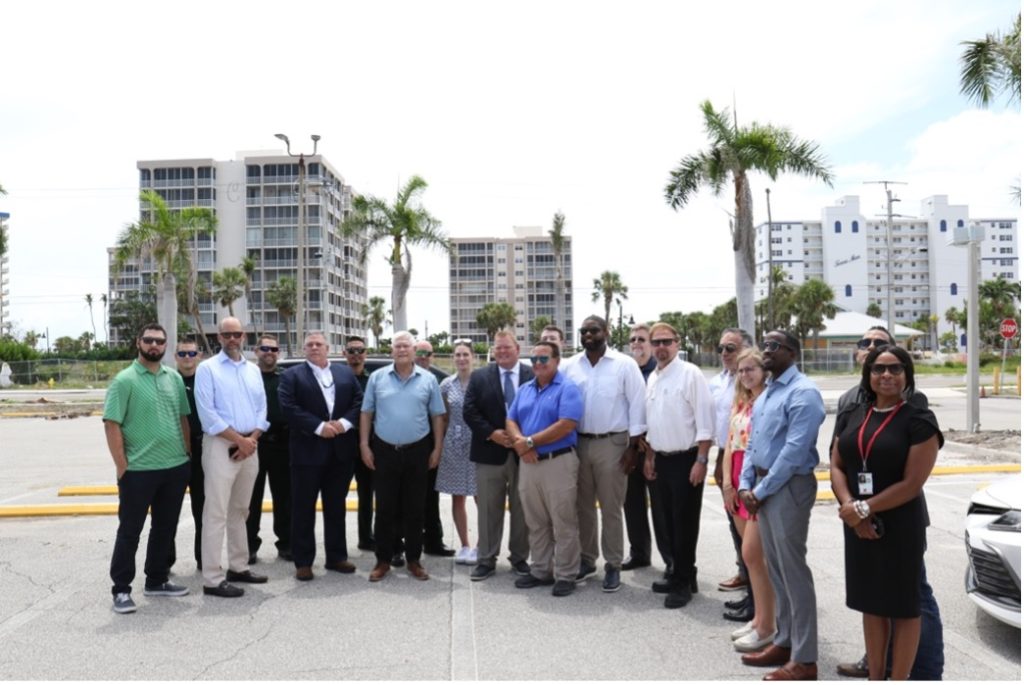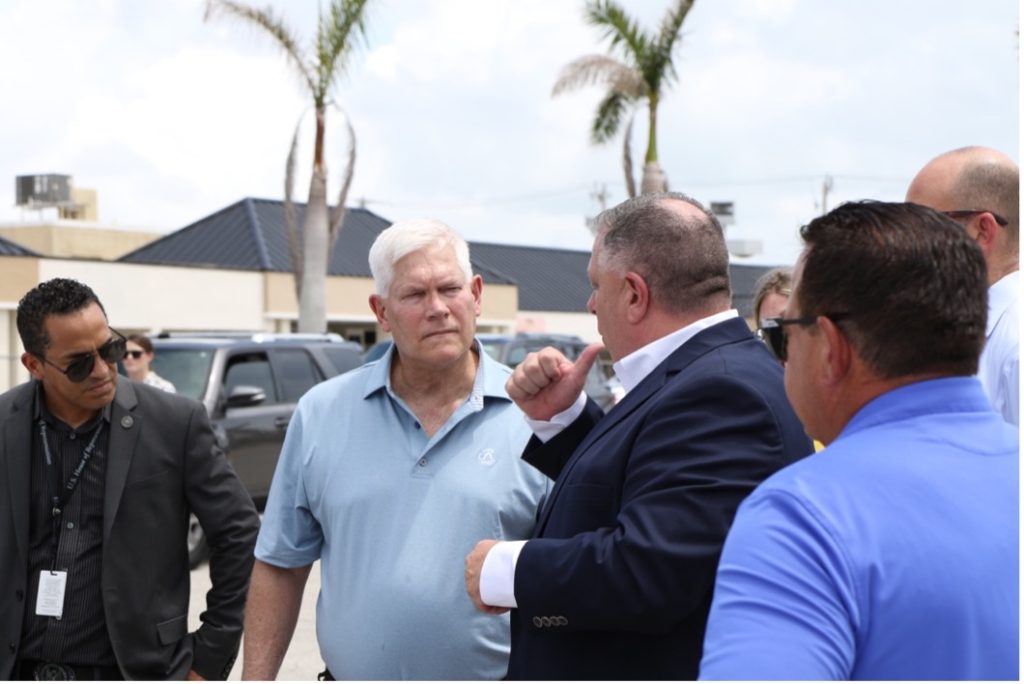Hearing Wrap Up: Federal Agencies Should Streamline Response to Bring Relief to Communities After Hurricane Ian and Future Disasters
“All of the federal agencies have great processes. But it prevents them at times from fulfilling the purpose.”
WASHINGTON—House Committee on Oversight and Accountability Subcommittee on Government Operations and the Federal Workforce held a field hearing in Ft. Myers, Florida last week titled “Weathering the Storm: Oversight of the Federal Response and Recovery Efforts in Southwestern Florida Following Hurricane Ian” to assess the federal response to Hurricane Ian almost one year after it hit Southwestern Florida and caused the third-costliest hurricane damages in the United States on record. Members also examined the role federal agencies play in disaster response and recovery. During the hearing, lawmakers heard from a panel of federal agency officials from the Federal Emergency Management Agency (FEMA), the Small Business Administration (SBA), and the Department of Housing and Urban Development (HUD), and a panel of local witnesses, including Ft. Myers Mayor Kevin Anderson.
Key Takeaways:
Although federal agencies were quick to respond in the immediate aftermath of Hurricane Ian, the severity of the storm created lasting impacts on local infrastructure, government operations, and everyday life.
- “Although we made a lot of progress in a lot of areas of Southwest Florida, there’s still much to be done,” Rep. Donalds said during the hearing, noting that recovery for many constituents has made great progress but is far from complete.
The federal disaster response process spreads funding and responsibilities across dozens of agencies. The complexity of federal disaster response programs makes understanding the government’s work confusing for citizens and the state and local governments these programs are meant to benefit.
- Ms. Marion McFadden, Principal Deputy Assistant Secretary at the Office of Community Planning and Development at the Department of Housing and Urban Development (HUD) discussed the shortcomings with delays in HUD funding reaching communities. “Communities receiving [CDBG] funding routinely praise its flexibility, the long-term nature of the assistance, and the high levels of community engagement. […] However, we often hear that these dollars do not reach communities quickly enough.”
- “…There were many moments across many different agencies where the regulatory hurdles, miscommunication, and burdensome administrative requirements were too big and too rigid to attend to the community’s needs. What was needed at that time was urgency and flexibility,” Mr. Brian Hamman, Chairman and District 4 Commissioner of Lee County, Florida, said during his opening remarks.
Community members are grateful for the assistance they have received from federal agencies thus far but are concerned that challenges and regulatory burdens across agencies are making it difficult for community members to receive the assistance they need.
- During the hearing, Mr. Francisco Sánchez, Associate Administrator for the Office of Disaster Recover and Resilience at the Small Business Administration (SBA), discussed what Congress can do to make receiving benefits less complicated. “Write into the law that a loan from SBA and a grant from FEMA is not considered a duplication of benefits,” he said. “That’s the single greatest thing that Congress can do right now in terms of when it comes to that front end of a disaster to help unleash the power of both those programs and make it less complicated and less cumbersome for someone that’s coming to a very bad day post a disaster.”
Member Highlights:
Rep. Byron Donalds (R-Fla.) examined regulatory requirements surrounding FEMA’s disaster response and whether they caused delays in providing relief to communities impacted by Hurricane Ian, including in providing housing assistance and travel trailers.
Rep. Donalds: “Can you speak to the timetable between requests for housing assistance from a resident in a special flood area to the time when FEMA actually made a determination that they actually could place trailers in the special flood area?”
Mr. McCool: “It was about 45 days.”
Rep. Donalds: “What are the procedural concerns around it taking FEMA 45 days to make such a declaration?”
Mr. McCool: “We worked through in 45 days the regulatory and policy requirements. I don’t think we could have worked any faster. The bottom line is we have to keep people safe. We don’t want to put people at risk, so we did a very deliberate flood risk analysis both through the three islands and every county that was affected and we had a direct housing mission for.”
Rep. Andy Biggs (R-Ariz.) examined Congress’s role in appropriating funds through the HUD Community Development Block Grant (CDBG).
Rep. Biggs: “Ms. McFaddon, in your written testimony you mentioned that it takes around eighteen months from the time of a disaster until the first CDBG dollar is spent. This is assuming of course that Congress even appropriates funding. […] What problems occur because Congress has failed to act to reauthorize the program?”
Ms. McFadden: “The first problem is that when the worst disasters happen, my counterparts in other agencies immediately start moving funding. Start working with survivors. We wait and hope for the most part that funding will be made available. Because we do not have a permanently authorized program, we have been advised by out lawyers that we cannot write regulations. It’s unclear to communities if they get the funds what the rules will be.”
Rep. Chuck Edwards (R-N.C.) discussed how FEMA’s complicated application process can make it difficult for those facing disaster to obtain assistance.
Rep. Edwards: “In the mountains of North Carolina one of the most recent disasters was complicated by what has been described to me as an over-complicated application process. Have any of you heard that before and is there is there anything being done to streamline the application process?”
Mr. McCool: “Yes sir, I’ve heard that. One of our administrators’ top priorities is to reduce paperwork and streamline the application process for survivors so they have access to our programs. We use disaster survivor assistance teams – as a matter of fact we have 657 of them here for Hurricane Ian – and they have iPads, tablets, and are able to go house to house to register survivors on the FEMA side. We also have global emergency response vehicles that we’ll be able to set up in parking lots. They’re mobile and they have satellite capabilities.”
Rep. Edwards also asked how federal agencies’ processes have at times led to shortcomings in the response to Hurricane Ian.
Rep. Edwards: “Mr. Anderson, you mentioned that you felt there was more of a quest for process over purpose. Can you give us some examples of processes that got in the way of the purpose?”
Mr. Anderson: “Real simply, debris pickup. Not being able to pick up debris until we were told go ahead and pull the trigger. Meanwhile, it’s piling up.”
Subcommittee Chairman Pete Sessions (R-Texas) asked about the process for allocating HUD funding designated for housing.
Rep. Sessions: “What is your evaluation on that recommendation for getting the money and handing it out versus what might be affordable housing, what might be SBA loans, which might be actually to look at the island and say here are its real needs. Is there an impediment to that process?”
McFadden: “…With the CDBG funds, the state or the counties that have been allocated the funds go through a local planning process. In allocating the funds to them, we use data from FEMA and from the Small Business Administration about uninsured losses, but ultimately those decisions are made by the state and the county.”
Rep. Sessions: “Do you place restrictions or rules and regulations on those?”
Ms. McFadden: “It’s federal money, so of course we do, because we need to ensure compliance with all the laws and the regulations. We are transparent with the data that we use in allocating, and we say essentially this is how much housing need we think you have, how much small business need, and how much infrastructure need.”
CLICK HERE to watch the hearing.
READ MORE: Sessions Opens Field Hearing Examining Federal Support to Communities Recovering from Hurricane Ian
After the hearing, Rep. Donalds arranged a tour of Ft. Myers Beach, led by Mayor Dan Allers. Ft. Myers Beach was one of the communities most impacted by the storm. The tour provided members of the Subcommittee an opportunity to see the scope of the devastation caused by Hurricane Ian, as well as the state of recovery. FEMA and SBA officials also attended the tour, allowed for on-the-spot discussion of concerns, challenges, and potential solutions to help not just Ft. Myers Beach, but all impacted areas, get back on their feet.
After the tour, Rep. Donalds facilitated a meeting with Mr. Dana Souza, city manager for the City of Sanibel, to discuss issues related to that community’s recovery efforts.
